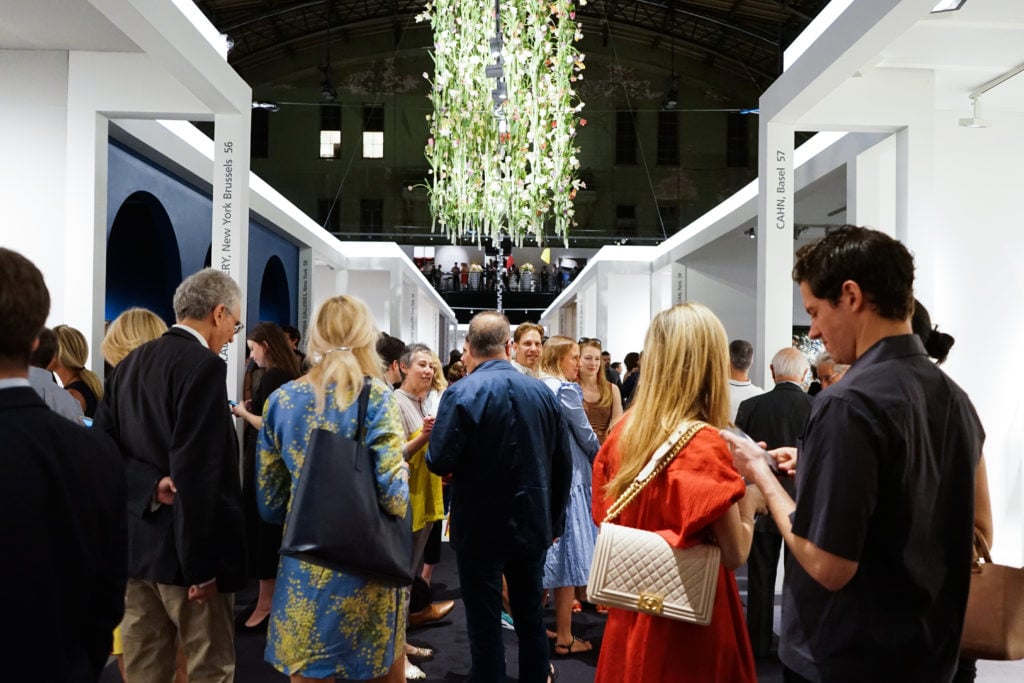Law & Politics
At One of New York’s Ritziest Art Fairs, Oyster-Shuckers and Genteel Calm Mask a Court Battle Behind the Scenes
TEFAF and Artvest disagree over the terms of their partnership.

TEFAF and Artvest disagree over the terms of their partnership.

Eileen Kinsella

It is difficult to launch an art fair in New York, a city with complex union rules, few suitable spaces, and sky-high rental fees. But when the European Fine Art Foundation (TEFAF) opened its first fair in the Big Apple in 2016, complete with an oyster cart and elaborate flower arrangements, it was greeted with glowing reviews. Now, however, it appears there has been major turbulence behind the scenes.
TEFAF and the New York-based advisory firm Artvest have been locked in a legal tussle over their involvement with the brand, which holds spring and fall editions at the Park Avenue Armory on Manhattan’s Upper East Side. (News of the scuffle was first reported by The Art Newspaper.) Since 1988, TEFAF has operated its marquee event—regarded as the world’s premier Old Master and antiques fair—in Maastricht. The New York fairs were a gambit to expand its footprint and develop an American audience.
The partnership between the two began in 2016, when TEFAF struck a high-stakes agreement with Artvest, run by former auction executives Michael Plummer and Jeff Rabin, to gain access to the Armory, a prime location that is often booked years in advance. Artvest had already secured a coveted slot on the venue’s calendar when it bought and re-branded a spring show there in 2014.
After jointly holding several successful TEFAF New York shows, TEFAF leaders asked a New York judge to state that it had no commitment to employ Artvest at future fairs following the expiration of a two-year partnership agreement in June 2018. Both sides confirmed to artnet News that they are currently in talks to resolve the matter without further litigation if they can, but it appears that the business relationship has turned rocky and contentious.
Under the initial terms of the agreement, Artvest made a capital contribution of $3.5 million in exchange for 49 percent ownership of TEFAF NYC. The firm’s founders claim they have two of five advisory board seats and “super-majority” voting rights, which means equal say about any changes to the New York fair.
According to the Art Newspaper, Artvest also received a management fee of $24,000 a month and an “annual rate of $400,000 with respect to” the period between July 1, 2016 and June 30, 2018, which could be extended at TEFAF’s discretion. Artvest, meanwhile, maintains it was to remain involved with the fairs after the two-year agreement ended, simply under different terms.
We obtained a copy of an order, filed in New York County Supreme Court in May 2018, that outlines the dispute. After TEFAF filed its request for declaratory judgment in March, Artvest fired back in April with a claim of its own. Rabin and Plummer asked for a preliminary injunction that would stop TEFAF from terminating its management rights and responsibilities. They also asked that TEFAF be barred from making any negative or disparaging comments about Artvest.
“We requested the temporary restraining order in response to the effort to try to remove us from day-to-day management,” Plummer told artnet News.
In late May, after the spring fair in New York was held, the judge denied Artvest’s request for a preliminary injunction based on “the clear, unambiguous language of the agreement, the court finds that something expires on June 30, 2018. TEFAF’s explanation is viable. Artvest’s is not.”
According to the Art Newspaper, Artvest almost immediately appealed that decision. In a preliminary statement filed on June 15, Artvest’s attorneys claim that the company would be irreparably harmed by the loss of its bargained-for management and ownership rights, which would damage its reputation, business opportunities, and relationships in the New York art market.
The judge has not yet ruled on the initial action that started it all—TEFAF’s request for a declaratory judgement freeing it from any obligation to continue working with Artvest.
“The intention with TEFAF… is that we were to remain on as long as we were invested,” Rabin and Plummer told artnet News. “We continue to have a significant role in a business that we own half of.”